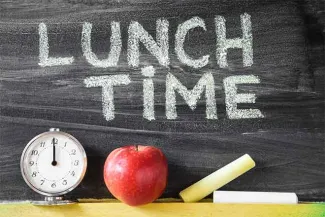
Colorado voters to decide fate of 'Healthy School Meals for All' program
Click play to listen to this article.
As the government shutdown poses immediate threats to food assistance programs, Colorado voters will have an opportunity to help fill some of the gaps by taxing residents earning more than $300,000 a year.
Proposition LL and Proposition MM would fully fund Colorado’s Healthy School Meals for All program and allow the state to use any extra revenues to offset cuts to the Supplemental Nutrition Assistance Program under the GOP’s signature tax and spending bill.
Pablo Rivera, a visual art teacher at South High School in Denver, supports both measures. He said when all students have access to nutritious food, they can show up at their best in the classroom.

© iStock - FotoDuets
"We’ve seen how successful this program is by just the number of students who are using it," Rivera observed. "This is an opportunity for Colorado to remain a leader in the country in providing free and healthy foods for our students."
The school meal program’s unexpected popularity, alongside spending limitations under the state’s Taxpayer’s Bill of Rights, has created a budget shortfall. If approved by voters, the propositions are expected to generate more than $100 million for the program. Some opponents say students from low-income families can already get free and reduced priced meals, and the measures amount to taxing the very rich to help slightly less rich students eat for free.
As a student from a family who qualified for free meals, Rivera pointed out young people are very aware of who needs assistance and who does not, and lunch line shaming is real. Healthy School Meals for All, passed by voters in 2022, removes the separation. Rivera noted it also removes a big administrative burden for schools so they can focus on education instead of paperwork.
"Not only does it remove the stigma, it creates this kind of universal access to lunch," Rivera explained. "It also frees up resources for schools."
Rivera argued a fully funded program would boost income for Colorado’s food producers, by allowing schools to purchase directly from local farmers. It would also train cafeteria staff to transition from highly processed foods to preparing healthier meals from scratch.
"What I would really like to see with the passing of these ballot measures is a move towards providing more locally sourced foods for our students and healthier, less processed foods," Rivera outlined.















